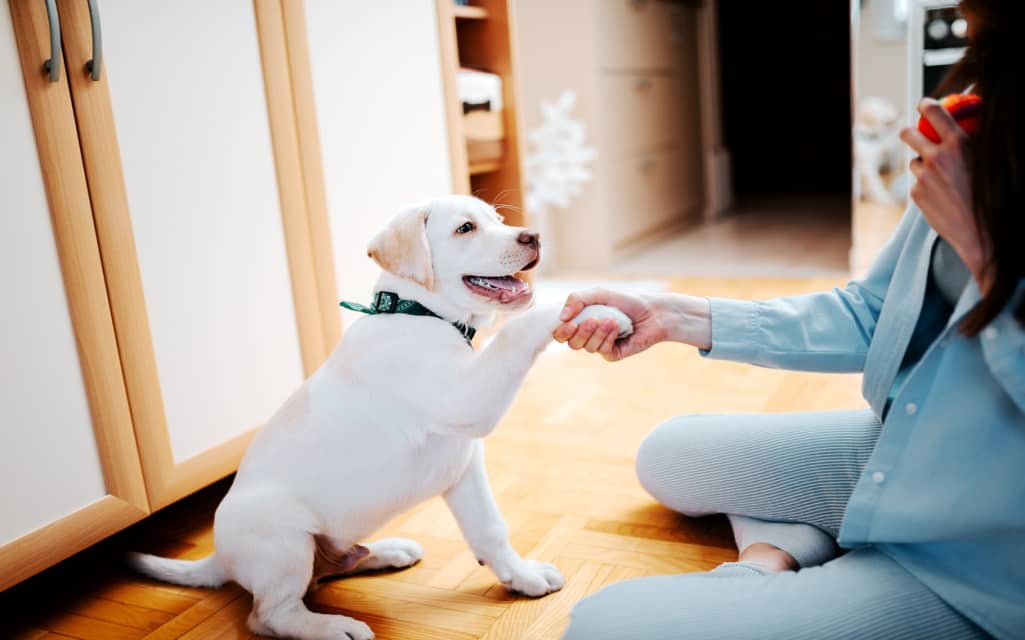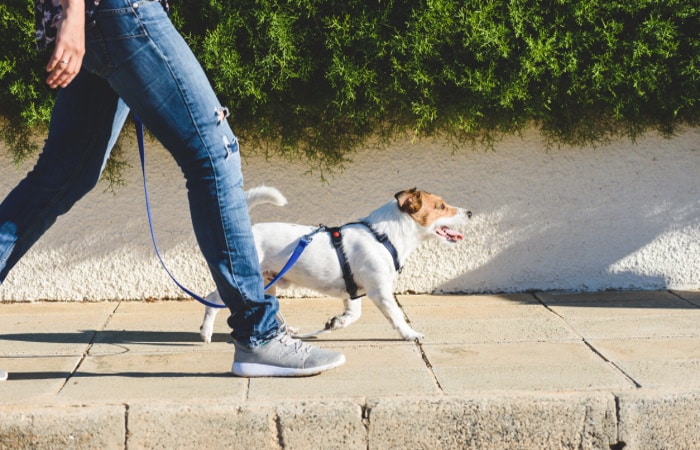Good owners understand that exercise, a healthy diet and plenty of love are crucial to a dog’s wellbeing. However, many people often miss an important key factor to raising a well-balanced pup. T
This important factor is what we call socialization.
Socialization is arguably THE most important thing you can do for your dog. There is a common misconception that socializing simply means having your dog play at the dog park or doggy daycare and make friends with other dogs. And while this can be an important part of it, this is barely the tip of the iceberg.
A poorly socialized dog may be fearful and insecure, difficult to handle, over-excited, and in extreme cases, pose a risk to themselves as well as those caring for them in public, at vet clinics, in the car, at the park, and anywhere else you might need to take them like doggy daycare or overnight dog boarding facilities.
The things that determine a dog’s reactions to the world around them are their temperament and socialization or experiences early on in life. And this all stems from socialization. So, let’s take a look at this in more depth.
Understanding Socialization
What is Socialization?
Before describing the importance of socializing your dog, first, we will define what socializing really is and all that it entails.
Socializing is a thoughtful process by which you will expose your dog to all the things in their world, at their pace, in a positive way so that they may experience and interact with these things without fear.
It is about giving them the ability to handle situations like meeting other dogs, going to the vet, going for car rides, nail trims and much more with confidence instead of fear or aggression. It is about considering their temperament and confidence level and carefully socializing them to different sights, sounds, smells, people, animals, surfaces, locations, and situations calmly and positively.
When Should You Start?
There is a crucial window for socializing a puppy in the first four months.
The things your puppy experiences during this time can affect how they interact with and react to the world around them for the rest of their lives.
Therefore, veterinarians and training professionals recommend beginning the socialization process from an early age, as soon as your puppy comes home. When you start from a young age, the puppy has a clean slate, and you have the opportunity to ensure new experiences are not something to be afraid of, which will help build their confidence going into new situations as they get older.
The key here is not to overwhelm your puppy but encourage them to experience new situations at their own pace and be there to guide them and reinforce them as they explore and take in new things. Starting early can mitigate problem behaviours in the future.
Having said that, if you adopt or rescue an older dog, all is not lost. It is possible to socialize an older dog using the same steps. However, the process can be a little more challenging as you are potentially contending with a prior lack of socializing, negative experiences, fear and learned reactions such as over-excitement. You will want to treat your dog like a puppy, taking everything incredibly slow and methodical. You will not be able to rewire what was learned during that critical stage in puppyhood; however, you can certainly build up their trust in you and their confidence with careful positive interactions. It is important to note that it is best to consult a trainer experienced in reactivity if you have major fear, aggression, or reactivity issues to help you.
Why is Socialization so Important?
We are currently seeing an increase in dogs lacking socialization skills, exhibiting fear and separation anxiety at a higher rate than before. If you consider the way the world has changed over the last couple of years, it starts to paint a picture of what is happening to these dogs.
COVID-19 changed the world in many ways. People were working from home and home more simply due to restrictions in their cities. This became a perfect opportunity for otherwise busy people to finally get that puppy they had been wanting; they would now have the time to spend bonding with their puppy and training their puppy.
However, what was also happening during this time was that these puppies were home with their families and did not have as many opportunities to socialize with many different people, other dogs, new places, or experiences. As mentioned earlier, the outcome of that is a dog that lacks the confidence to be left alone, nor the prior experience to take on new situations without fear.
Socializing your dog will impact what you can do with your dog for the rest of their lives. Just like with people, the more varied and positive experiences your dog has, the more friendly and confident your dog will be.
The types of things that the amount of socialization will impact include:
- Meeting new people.
- Going for walks in public places.
- Vet visits.
- Travelling.
- Family get-togethers.
- Travelling the car.
- Meeting children.
- Utilizing a well-managed and structured doggy daycare and boarding program where the dogs will be able to play.
The handlers understand how to read a dog’s stress signals and avoid overstimulation. A well-socialized dog can often enjoy activities to the fullest, without stress, fear or reactivity. Beyond that, ensuring your dog is well adjusted and confident can even save their life. Behavioural issues are the number one cause of death for dogs under three years of age.
How to Socialize
Ideally, socializing will begin very early in life. As mentioned earlier, there is a crucial socializing period for puppies before four months of age. You will want to introduce your puppy to many different sights, sounds, smells and experiences. Consider every new person, place or object as an opportunity to make a further positive association and experience for your puppy. Come up with a checklist of everything you can think of that your puppy may someday encounter, such as different people, noises, sights, smells, surfaces and other animals.
For example, you will want to have your puppy walk on different types of flooring, hear sounds such as children playing, baby cries, meeting people with sunglasses, people with hoods on, see baby strollers, bicycles, desensitize them to ear touching, paw handling, visiting the vet clinic just to introduce your pup to the vet and get some treats etc. The list of potential ways to socialize your puppy is endless!
Make it positive! It is incredibly important that you use positive reinforcement during these interactions. Stay aware of your pup’s body language and be ready to help them out if they look stressed. You can pair new situations with calm body language, affection and especially, yummy treats!
Don’t push them. You mustn’t force your puppy to interact with anything they are afraid of, but instead, allow them to explore and investigate at their own pace. Forcing interaction when they are afraid can have the opposite outcome than what you are looking for. This can increase fear and anxiety and cause reactivity down the line. Watch for stress signals and keep new interactions short and sweet, especially if your pup is a little on the timid side.
Puppy Classes. Getting your puppy into puppy classes, such as Social Puppy (puppy daycare) and Pup Academy offered at Pup City Doggy Daycare, where your puppy is carefully monitored during playtime with other puppies learning important social cues, play etiquette, bite inhibition and calmness in the presence of other canines as well as they will get exposure to different people, other puppies, sights and sounds through careful socialization.
The outcome of positive socialization is a dog that has learned how to be calmer in exciting situations, a dog with impulse control, who can greet other dogs and people with confidence, and a happy, confident companion for you at home!




